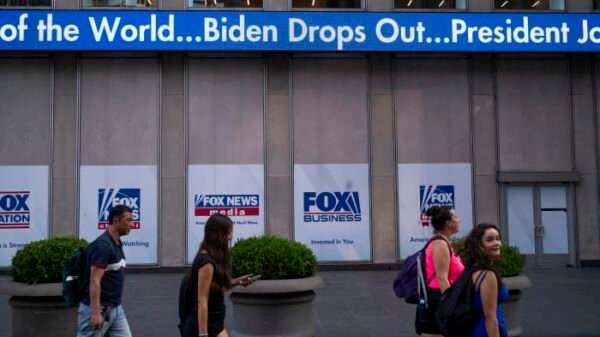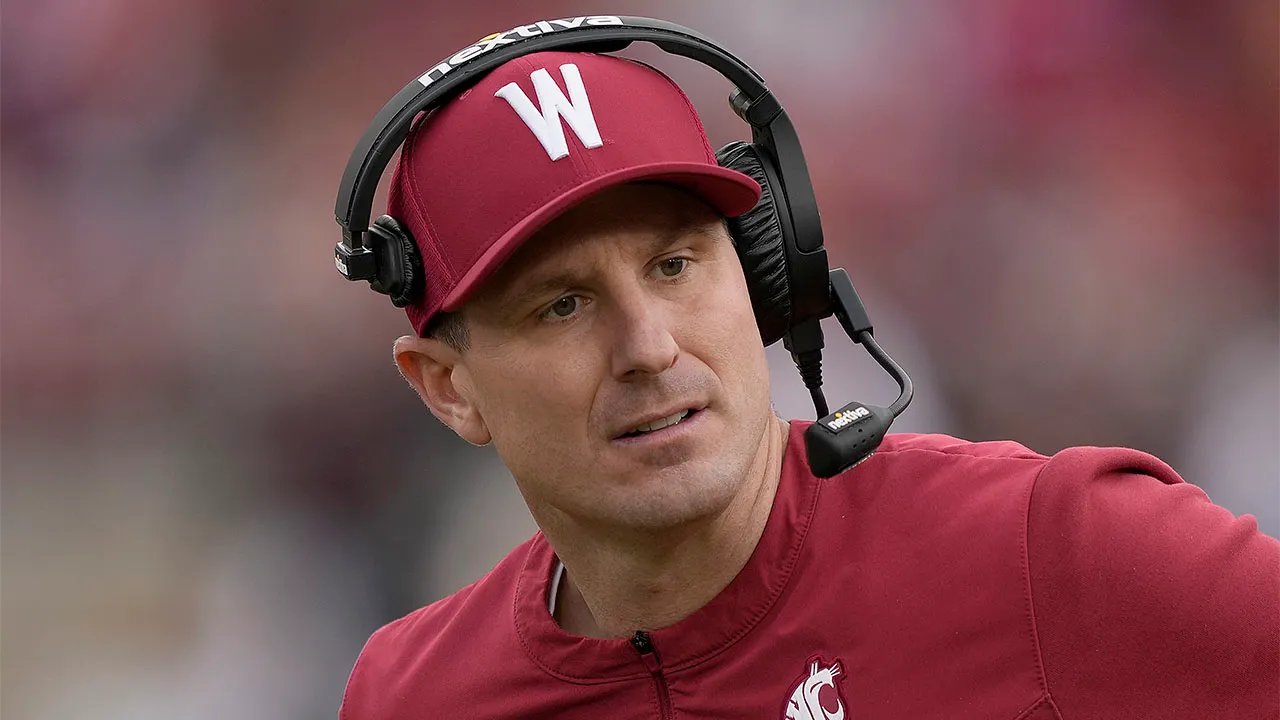Washington State Head Football Coach Reacts to Conference Realignment: ‘What are we doing?’
Conference realignment in college football has become a recurring theme in recent years. The ever-changing landscape of conferences and the pursuit of a bigger television contract have pushed athletic directors and university presidents to make difficult decisions. However, not everyone is thrilled about these constant changes, including Washington State’s head football coach. In a recent interview, he voiced his concerns and questioned the rationale behind such realignments.
The Shifting Conference Dynamics
Over the past decade, college football conferences have experienced significant shifts. Traditional rivals have been separated, new geographical rivalries have emerged, and historic programs have found themselves in unfamiliar territories. As a result of these changes, the competitive balance within conferences has been disrupted, leaving many coaches and fans scratching their heads.
The Coach’s Frustration
The Washington State head football coach conveys his frustration with conference realignment, saying, “What are we doing? We used to have regional rivalries and geographic sense. Now, we are competing against teams that we have zero connections to. It feels like we are just chasing money without considering the impact on the game and the fans.”
This sentiment is echoed by many coaches who fear losing the traditional rivalries that add excitement and historical significance to college football. These rivalries are often built on years of memorable matchups, intense competitions, and a sense of pride for the alumni and the community.
The Changing Landscape of College Football
One of the main reasons for conference realignment is the pursuit of financial gain. Television contracts and the revenue they generate have become crucial in supporting athletic programs. With the rise of cable television and sports networks, conferences are vying for the largest contracts possible, which often means reconfiguring their memberships.
Does Money Outweigh Tradition?
While the financial benefits are significant, the coach wonders if they are worth sacrificing the traditions and rivalries that make college football special. He remarks, “Sure, the financial aspect is important, but what about the fans who have supported these programs for years? Who will they root for when traditional rivals are no longer on the schedule?”
There is no doubt that the business side of college athletics is crucial for sustaining successful programs, but it is essential to strike a balance between financial gain and maintaining the integrity of the sport.
Repercussions of Conference Realignment
Conference realignment has far-reaching consequences beyond just changing game schedules and opponents. It affects recruiting dynamics, fan enthusiasm, and the overall identity of a program.
Recruiting Challenges
The coach acknowledges the difficulties in recruiting when the traditional rivalries that used to be a selling point have disappeared. He says, “It becomes harder to attract top-notch recruits when there are no distinguishable rivalries or exciting matchups on the schedule. Players want to be part of something special, and without those traditional rivalries, the program loses some of its luster.”
Fans Losing Interest
Another repercussion of constant conference realignment is the potential loss of fan interest. When teams lose their regional matchups, fans who have followed those rivalries for years may lose the passion and emotional connection to their team. The coach expresses his concern, stating, “We risk losing the soul of college football when we prioritize money over the traditions and connections that fans have cherished.”
Striking a Balance
While financial decisions drive conference realignment, it is important to consider the long-term impact on the sport and its stakeholders. The coach suggests seeking a middle ground that preserves regional rivalries while still pursuing financial stability.
A Call for Collaboration
The coach proposes a collaborative effort between university presidents, athletic directors, and coaches to ensure that conference realignments prioritize both financial benefits and the value of tradition. He believes that open discussions and evaluating the potential consequences can lead to better decisions that satisfy both parties.
Conclusion
Conference realignment may be an inevitable part of the ever-changing landscape of college football, driven by financial considerations. However, it is crucial to remember the importance of tradition, regional rivalries, and the emotional connection fans have with their teams. Striking a balance between financial gain and preserving the essence of the sport should remain at the forefront of any conference realignment decision. As the coach of Washington State aptly questions, “What are we doing?” It’s a question that should be asked, discussed, and answered before any further realignment takes place.
*Source www.foxnews.com




































